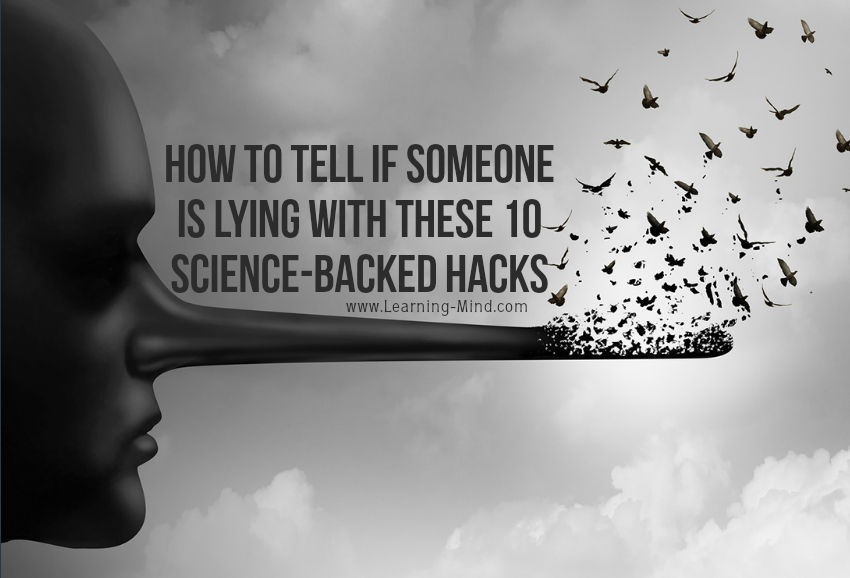
On their own, some of these signs are not too much to worry about. They can sometimes be for completely different reasons and not a tell that the person you are talking to is lying at all. However, if you notice several of these signs when you are having a conversation with someone, it would be as well to be on your guard.
One way to tell if the person you are talking to is lying is by watching their behaviour. Researchers have discovered that people who are lying often give themselves away with nervous habits such as scratching, blinking or fidgeting. They may also start sweating or blushing.
However, we have to be careful, because people may display these signs for other reasons such as nervousness or even attraction. When we take these signs together with other clues though, they can point to someone being guilty of lying.
James W. Pennebaker, Ph.D., a professor of psychology at Southern Methodist University, has found that analysing people’s choice of words can reveal when they are lying. Along with his colleagues, he found that liars tend to use fewer first-person words such as ‘I’ or ‘my’.
In addition, Pennebaker found that liars are less likely to use emotional words such as ‘hurt’ and angry’ and also cognitive words such as ‘understand’ or realize’.
It may be difficult to notice this in a conversation. However, we sometimes just instinctively know that something is not right because our subconscious picks up on clues such as these.
Liars find it difficult to make eye contact. Maybe this is because they fear you may be able to see the lie in their eyes. So liars tend to look at the ground or away from you when they speak.
Again, this can be a sign of something else altogether, such as embarrassment or shame, so you should always take the context of the conversation into consideration.
Watching someone’s face can give us a way to tell he or she is lying. Liars try very hard to keep a poker face in order to hide their true emotions. This means that their faces are often stiff and they don’t smile or laugh much.
Liars will often keep their distance from you. They may be scared that you will realise they are sweating or jittery. This also helps them stay on their guard.
They don’t want to relax and let something slip that may give the game away. They may also find that keeping their distance helps them to deal with the guilt they feel.
Liars often make up long, convoluted stories about a situation when they are lying. If someone is telling the truth, they will stick to the facts and keep things simple and clear. Liars will add unnecessary details to try to back up their story and make it more convincing.
A liar has usually rehearsed their lie and so will appear to have a ready answer to any question you ask. This is especially noticeable if you ask them something they should probably need a moment to remember, such as what they were doing last Thursday evening.
You can sometimes catch them out in their lie by asking an unexpected question that they have not prepared an answer for.
If a liar thinks you may be on to them, they will abruptly change the subject. They know that any further conversation on the matter might cause them to trip up, so they try to move the subject off themselves and onto a less dangerous topic.
If you insist on sticking to the subject, you may find a liar starts getting very defensive. They may even get quite angry. You may notice them clench their fists or cross their arms.
In addition, they might start attacking you and changing the topic to something they believe you are guilty of in order to distract you from their lies.
Liars often use phrases such as ‘to tell the truth’ and ‘to be perfectly honest.’ They may even swear on a stack of bibles. Truthful people rarely find the need to go this far in declaring their honesty.
Being lied to is not a pleasant experience and most of us would prefer to see the best in people. However, it is good to be able to tell if someone is lying so you can protect yourself. Bear this list in mind if you are having a conversation with someone whose honesty you suspect.
At the end of the day, we should trust our gut instincts much of the time. Our subconscious picks up on all sorts of nuances in other people’s behaviour that alerts us to the fact that something is just not right.
References: